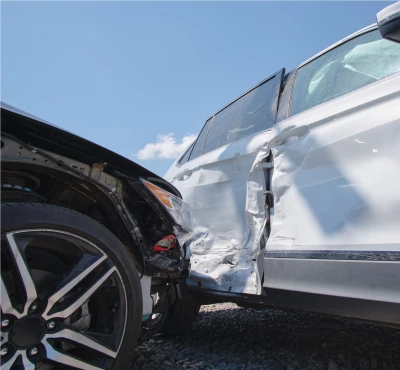Experiencing a car accident can be physically and emotionally traumatic. Beyond the immediate concerns of injuries, medical bills, and vehicle repairs, one often overlooked aspect is the loss of income due to missed workdays. Income lost because of your car accident injuries is a recoverable component of your claim, but you’ll need the right documentation.
A car accident lawyer in Philadelphia may guide you in gathering evidence, investigating the case thoroughly, analyzing the case, preparing a defense strategy, and representing your case in court.
How to Recover Lost Wages With a Car Insurance Claim
When you’ve been injured in a car accident, pursuing lost wages through a car insurance claim is a common course of action. Most insurance policies include provisions for compensating individuals who are unable to work due to injuries sustained in an accident. In a car accident case, “lost wages” refers to the money you would have earned from your employer from the accident to the date of settlement or judgment. To get your lost income, you must prove that the injuries that caused you to be out of work were directly related to the accident. To ensure a smoother process:

- Document Work Absences: Keeping a thorough record of the days you missed work because of the accident is crucial. Make note of the dates, and if possible, obtain a statement from your employer validating your absence.
- Notify Your Insurance Company: Promptly inform your insurance company about the accident and your inability to work. They will guide you through the necessary steps for filing a claim.
- Medical Documentation: Providing medical records that clearly demonstrate your injuries and the doctor’s recommendation for time off work strengthens your claim for lost wages.
Once you submit a request to the insurance company, it will most likely ask you to:
- Fill out an employment authorization form, which allows your employer to give information about your employment to the insurance company;
- Get an independent medical examination; and
- Submit relevant medical records
When submitting a personal injury claim, ensure you include detailed and accurate statements about your lost wages. The insurance company could deny your lost wages claim if any documents are incomplete or inaccurate.
Read these employment authorization forms carefully. They will grant insurance companies access to your personal employment information.
How to Prove Lost Wages
Proving lost wages is pivotal in recovering compensation. Collect the following documents to establish the validity of your claim:
- Doctor’s note: Before you can take time off from work, you must have sustained actual physical injuries. You will need a doctor’s note or disability slip that contains the recommended time to take off from work due to your injuries. This note must contain information about the injury you sustained due to the accident.
- Pay Stubs: Gather your recent pay stubs to demonstrate your regular earnings. If they are unavailable, you can also submit your W-2s or your tax returns from previous years. If you are self-employed, you can submit your tax return and other relevant documents from last year to prove the money you would have earned during your recovery. Other relevant documents include profit-and-loss statements, invoices, receipts, bank statements, or finance-related correspondence.
- Employment Records: Documentation of your job position, responsibilities, and salary can bolster your case.
- Wage verification letter from your employer: Besides paystubs, you must submit a letter from your employer to confirm important employment details. The letter should contain the days you were absent, your pay level, and the number of hours you work during each pay period.
How to Calculate Lost Wages
Calculating lost wages is a meticulous process that involves more than just adding up your hourly or weekly pay. Consider these factors:
- Regular Earnings: Include the wages you earn in a typical workweek.
- Overtime and Bonuses: If you regularly work overtime or receive bonuses, these should be factored into the calculation.
- Benefits: Don’t forget to account for any employee benefits like health insurance, retirement contributions, and paid time off.
Depending on your injury like headaches after a car accident, the time you miss from work recovering may not be the only income that is impacted. Your injury could also impact future wages and your capacity to earn income. If your injury may prevent you from potential future earnings, your lawyer will be able to help you calculate future losses based on your injury, age, employment history, education, and skills.
How Long Does The Process Of Recovering Lost Wages Usually Take?
The timeline for recovering lost wages varies. Factors like the complexity of your case, the insurance company’s responsiveness, and any legal proceedings play a role. Generally, it can take anywhere from a few weeks to a few months. It’s important to be patient while your claim is being processed.
Seeking Legal Help? Contact Greg Prosmushkin, P.C. Today
If you’re confused about things like injuries after a car accident, arguing and fighting with the insurance company, when your claim is too big for insurance, or brain injuries, don’t worry. A lawyer can help.
These experts know a lot about the rules and can help you understand what to do. They can talk to the insurance people for you and even go to court if needed. In the end, getting your lost wages back after a car accident takes some effort. But with the right steps and maybe some legal help, you can make things better for yourself, both physically and financially.






